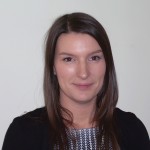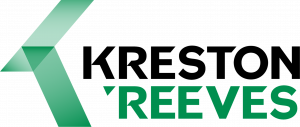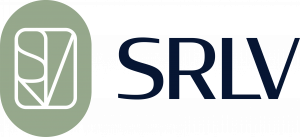Sarah is a qualified Associate Chartered Accountant (ACA) and Chartered Tax Adviser (CTA), working in Tax at PwC. Despite not following a traditional route into accountancy or tax, Sarah has enjoyed the challenges of working for one of the ‘Big Four’ professional services firms.
I studied Law with French at university, spending an academic year studying in Belgium as part of the Erasmus programme. I joined PwC in October 2009, starting my ACA qualification at the same time. After passing my final accountancy exams in November 2012, I applied to sit the CTA exams and I successfully passed these in January 2014, obtaining a distinction in the Taxation of Individuals paper and being awarded The Pat Cullinan Medal for the student who obtained the highest marks in Northern Ireland.
Why did you choose a career in the tax industry?
While I ended up studying law almost by default, I really enjoyed my degree, especially studying criminal and family law. However, when I got some practical experience (shadowing a barrister in an attempted murder case and working in a solicitors practice specialising in family law), I realised that practising law was not the career for me. In my final year of university, I was interetsed in accountancy as a career as it could give me the experience I wanted – being able to work in a large organisation that offered an excellent training scheme and plenty of opportunities for the future.
When applying to PwC, I chose tax as the department I wanted to work in as I felt my skill set was best suited to this area. I was comfortable with and interested in working with tax legislation and interpreting case law. Undertaking my ACA qualification enabled me to gain a good grounding on a wide range of business issues which helped me understand the wider business issues that affect our clients. By doing the CTA exams, I was able to build upon the practical knowledge I’ve gained working in tax to allow me to become a well-rounded tax adviser.
I initially started off dealing with corporate tax compliance work. This involves drafting corporation tax computations and returns for submission to Her Majesty’s Revenue and Customs (HMRC) along with communicating with our clients and HMRC to ensure that each company pays the right amount of tax at the right time. Our office deals with both owner managed businesses and large groups of companies. I’ve been involved in managing the taxation affairs of a variety of these businesses and each of these give different issues for us to consider. Working in the Corporate Tax Compliance team gave me a good grounding as to the basics of corporation tax which has proved invaluable for the work I’m now doing.
I now work in our Corporate Tax Consulting team and I maintain relationships with a portfolio of compliance clients, picking up on ad-hoc issues or specific projects as they arise, such as restructuring projects and deals.
What is a typical day like for you?
A typical day for me at the moment will begin with a cup of tea while I compile my to-do list – working in tax means there are always deadlines to be met so good prioritisation skills are key.
Generally my day will consist of several meetings to catch up on the progress of various projects as I work as part of a larger team on each project, along with time spent researching, speaking to specialist tax experts and preparing reports to analyse the tax impact of the transactions currently being undertaken by our clients.
Frequently, the work I’m involved in requires implementation by legal teams so I spend time liaising with legal advisers and responding to their queries in order to progress the transaction for our client. If there’s an international element to the transaction, we also need to take advice from our colleagues overseas and so I can also spend part of my day catching up with these overseas teams.
Working in tax consulting means there can be weeks which are busier than others so you need to be flexible and prepared to put in some extra hours when a project is due to complete.
What do you enjoy most about your job?
While the job can be time pressured and demanding at times, there are many positives about working both for PwC and more widely, in tax. The work is challenging and you’re constantly learning new things – whether this is learning through undertaking your own research or being coached by more senior members of the team. I really enjoy working with a variety of highly qualified and motivated people who constantly seek to develop others. For me personally, this has meant a part-time secondment working with a specialist team to enable me to gain knowledge in a particular area of tax. This not only is assisting in my personal development but also the development of our team in the future.
Since I joined PwC, I’ve been involved in a variety of large projects, covering a range of issues so I’ve been able to gain a lot of experience. Right from day one, I was involved in client work and we’re actively encouraged to form relationships with clients from the outset. Going to meet our clients and being involved in delivering the results they desire are parts of the job that I really enjoy.
Do you have any advice for anyone wanting to get into the industry?
If you’ve decided that this is the career path for you, there are three areas I’d give some advice on.
Firstly, in terms of obtaining a professional qualification, I found both the accountancy and tax exams the most challenging I’ve ever undertaken so you do need to be prepared to put the hours in on top of your working week in order to pass and also devote an appropriate amount of time to studying before the exams. However, it’ll all be worth it once you’ve gained the qualification.
From a work perspective, it’s really important that you don’t expect to be given all the answers – try to be inquisitive by asking questions and researching areas you’ve not seen before in order to develop your understanding and demonstrate willingness to learn.
And perhaps most importantly, as tax is so complex and constantly changing, it’s essential to recognise what you do and don’t know and seek advice where you’re unsure – it’s not a bad thing to admit you don’t know the answer as long as you commit to finding it out.






